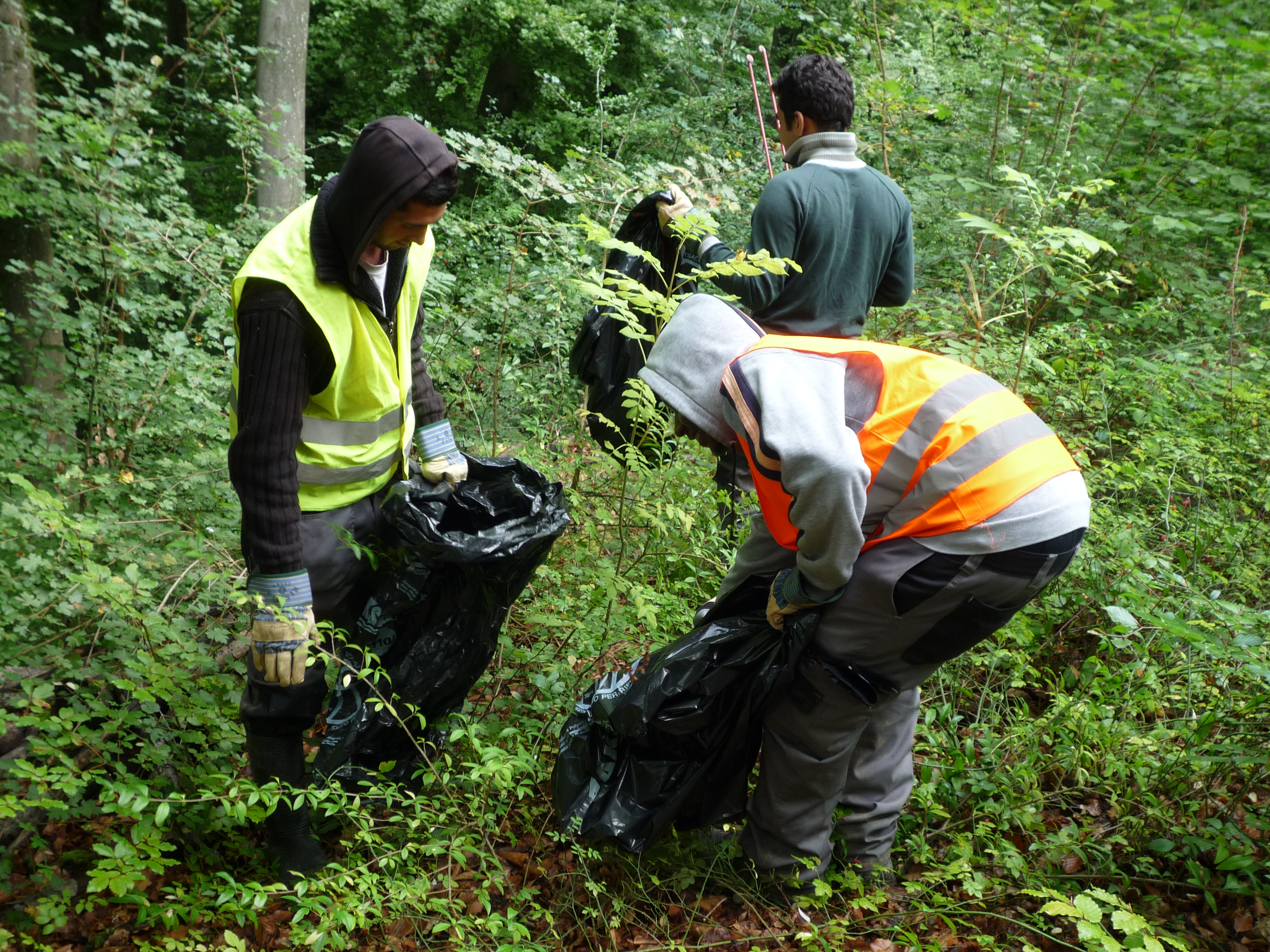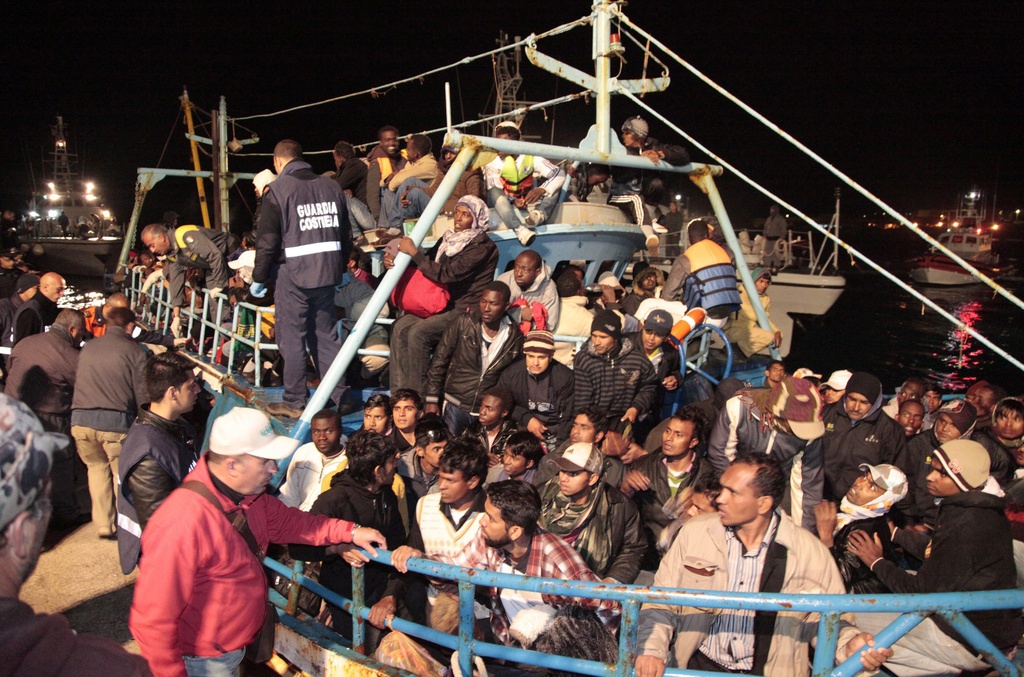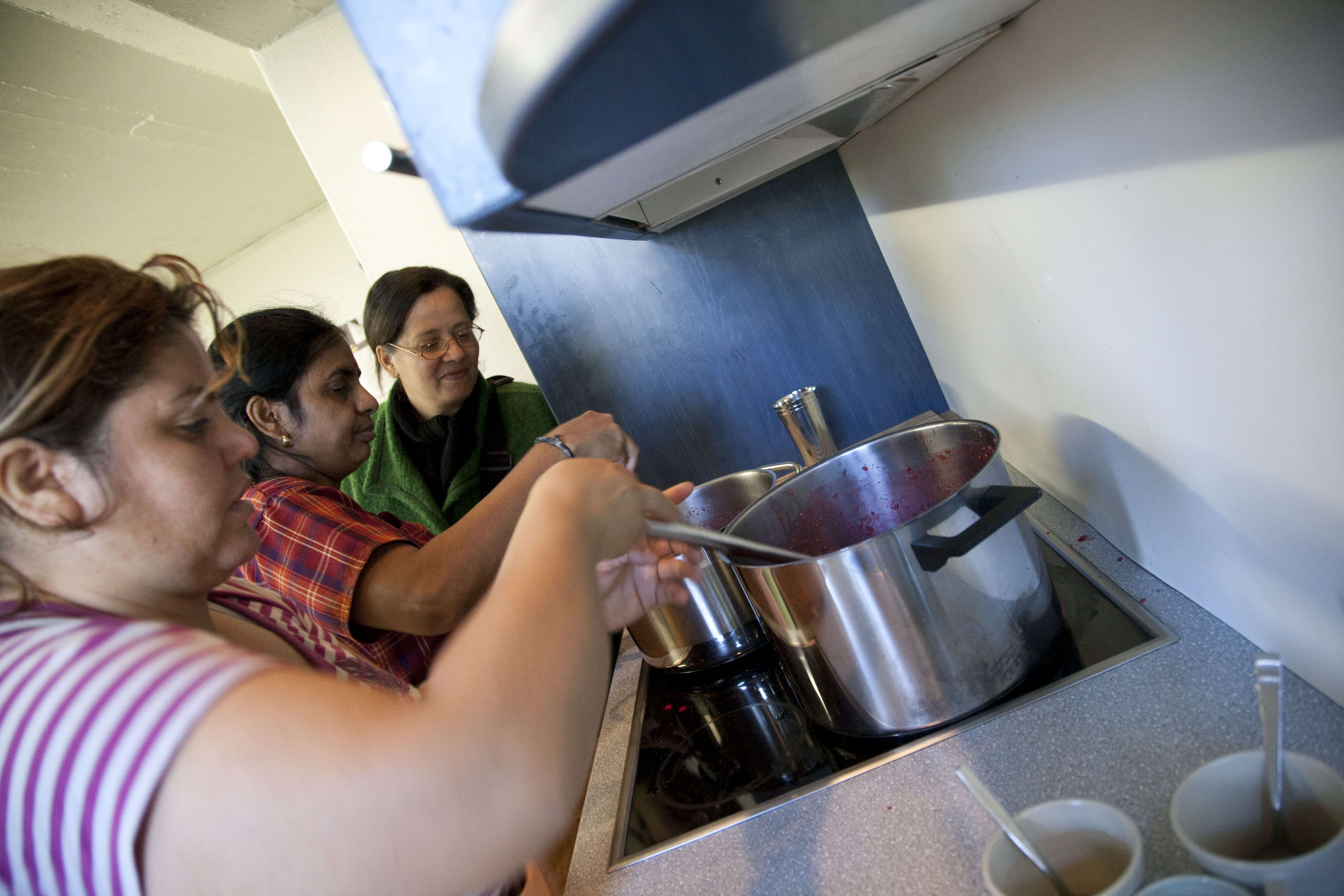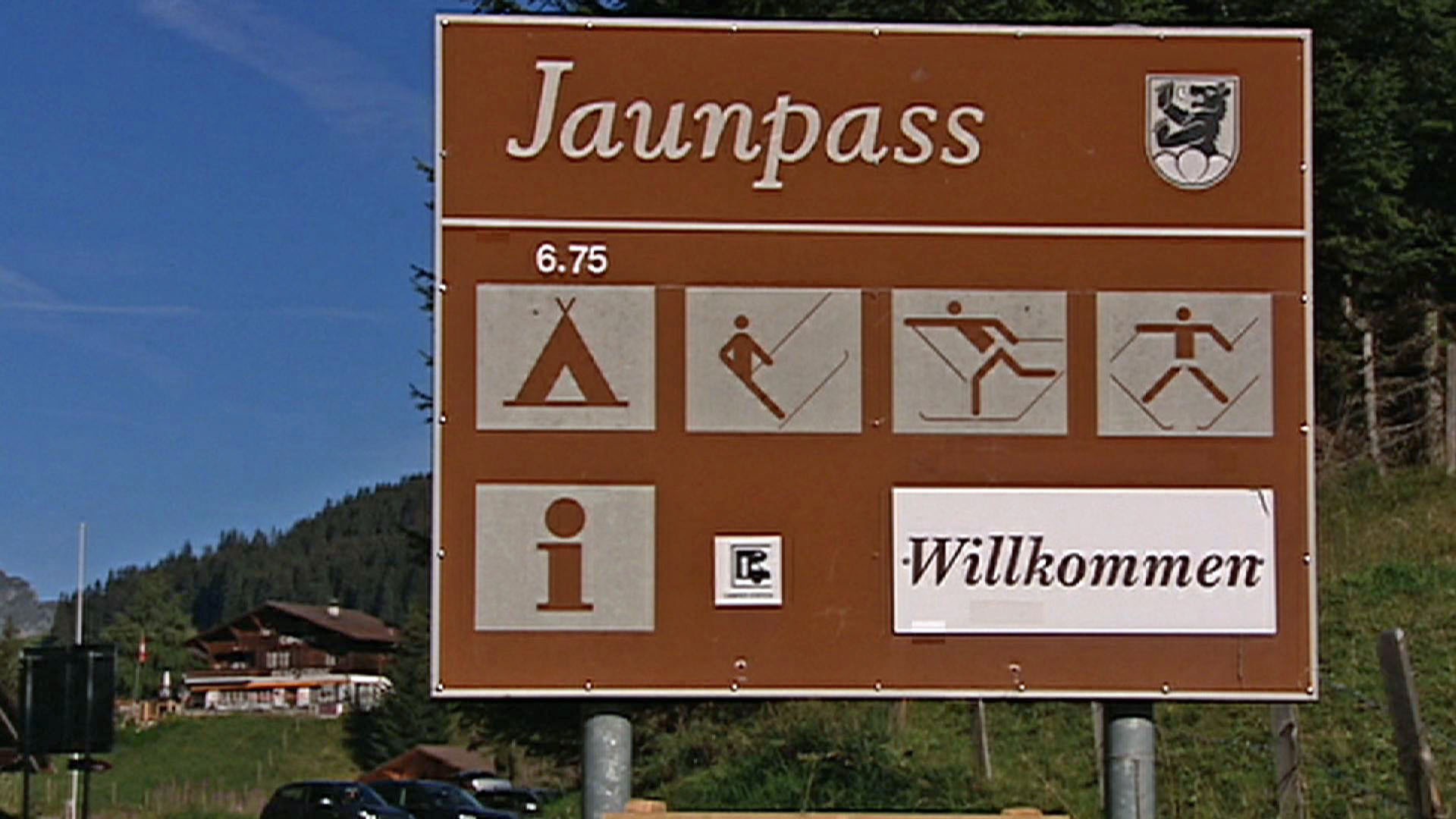Migrant work schemes flourish

A pile of muddy, discarded, broken objects – a child’s pram, a coffee machine, a stolen safe and other junk found in the nearby river - sit by the side of the road.
The unusual treasure trove was dredged up by a team of asylum seekers working on a long-term clean-up scheme in Lausanne. This year has seen a growth in similar public work programmes for migrants across canton Vaud.
“Earlier we found a handbag with some jewels that they handed over to the police and last week we found a scooter that had been thrown in the river,” explained Swiss social worker Nathanaël Dépraz, who has been coordinating the work of the eight asylum seekers.
Since the beginning of September, the group have been donning rubber boots, protective gloves and other gear every day to clean up stretches of the Flon, Louve and Vuachère rivers that flow above Lausanne down to Lake Geneva, as well as clearing overgrown parts of the Bois-Mermet and Sauvabelin forests.
The team of volunteers – two Somalis, two Guineans, a Nigerien-Ghanaian, a Gambian, an Iraqi and a Kosovar – were selected for the three-month paid programme by the Vaud Establishment for Migrants (EVAM) and the Lausanne authorities.
“The main aim is to occupy a migrant who has few job perspectives,” explained EVAM’s communication officer Emmanuelle Marendaz Colle.
“Either they can’t work or they can’t find anything. This is like a stepping stone for them, a first experience in Switzerland and it offers them a framework for things like punctuality and respect for rules.”
The jobs are in “grey areas which don’t bother anyone” so they do not take work away from the local population and are “win-win for everyone”, she added.
The asylum process in Switzerland takes on average 1,400 days. Asylum seekers in possession of an F permit (temporary admission) or N permit (awaiting a decision) are able to apply for work but jobs are either very hard to secure or require official authorization.
The clean-up team have diverse backgrounds and asylum statuses and have been in Switzerland from just a few months to up to three years.
Letterbox syndrome
Nonetheless, Dépraz is delighted with how they have been getting on together.
“They all have different perspectives which could create an imbalance, but paradoxically it works really well,” he said. “They are happy to be outside; it changes their normal outlook and they feel useful.”
Diallo Thierno, a 20-year-old law student from Guinea Conakry, said he did not mind getting his hands dirty.
“I think it’s very important to offer asylum seekers the possibility to work,” he said. “We spend days not doing anything and our families expect a lot of us.”
The organisers say asylum seekers suffer from a “letterbox syndrome”, waiting anxiously for a reply from Bern about their application, and find it difficult to plan ahead.
They say the work scheme helps combat idleness and prevent asylum seekers taking “negative paths”, such as drug dealing.
“Some people say to me ‘You’re crazy doing that programme’. I tell them I prefer to earn legal money and feed my family rather than just doing anything for money,” said Thierno.
Happy to get out
Most participants were grateful of the opportunity it gave them to get out of their apartment, shelter or residence and do something constructive.
“If I stay at home in Renens it’s not good for my head,” said Mahamud, a 26-year-old Somali, who used to be a police officer in Mogadishu.
Thierno said working outdoors allowed him to “forget about lots of things”, especially the “inhumane conditions” in the Mont-sur-Lausanne asylum shelter where he is staying.
“I think it’s a good programme,” said Bzhar, a 21-year-old Iraqi Kurd. “What do I do at home apart from eat, sleep or look after the animals? But what I want is a real job – and not just one day here and there.”
High expectations
Dépraz admitted it was difficult to manage asylum seekers’ expectations: “there is a gap between their demands and our reality. They want to work and think they can master French but often it’s not good enough.”
Despite the low pay by Swiss standards – they earn SFr300 a month for 20 hours’ weekly work on top of their normal SFr400 allowance – the scheme is having an impact.
“It might not be very gratifying putting their hands in mud but when they see the smiles from people thanking them for their work and asking about what they are doing, it’s good for them and gives value to their work,” said the social worker.
Organisers say the clean-up programme may offer a stepping stone to longer-term employment.
“If the partners are happy, it could lead to one or two jobs in the long term; I’m convinced as I’ve already been approached about this,” said Dépraz.
“We’re not talking about ten full-time posts but if it goes well the city is willing to give one or two people fixed contracts – we’ll see.”
Growing interest
Florence Germond, Lausanne’s finance director, who is also in charge of local parks and forestry, said the authorities were very happy with the programme so far and, all being well, hoped to extend it.
She said the scheme was an important contribution for immigrants as part of their integration and for the local community.
The Lausanne initiative follows similar asylum seeker work schemes this year in other parts of canton Vaud, such as Moudon, Payerne, Baulmes, Arzier, Nyon, Ollon and Vich, as word of mouth spreads.
“For a long time there has been a willingness to do such programmes, but since April there has been a real acceleration in the number of projects,” said Marendaz Colle.
“They create links with the host communities and present another image of immigrants, not just as people who are being assisted but as people who want to do something for society and that’s really important so that the Swiss change their views on immigrants.”
A recent opinion poll found that immigration and asylum issues are the main concerns of Swiss citizens. Since the 1990s Switzerland has progressively tightened its asylum and immigration laws.
From January to May 2011, 8,120 people applied for asylum in Switzerland.
Most of the 2011 applications were filed by Eritreans (1,645), followed by Tunisians (758).
While there has been in increase in refugees in recent months, the figures are nowhere near as high as in 1999 during conflicts in the Balkans and Sri Lanka.
As of May 2011, 38,000 people were in Switzerland seeking asylum. The 1999 figure was 104,000.
Canton Vaud is home to around 8.4 per cent of all asylum seekers in Switzerland.
At the end of August, 1,751,301 foreigners were living in Switzerland, accounting for 22.3 per cent of permanent residents in the country.

In compliance with the JTI standards
More: SWI swissinfo.ch certified by the Journalism Trust Initiative















You can find an overview of ongoing debates with our journalists here . Please join us!
If you want to start a conversation about a topic raised in this article or want to report factual errors, email us at english@swissinfo.ch.